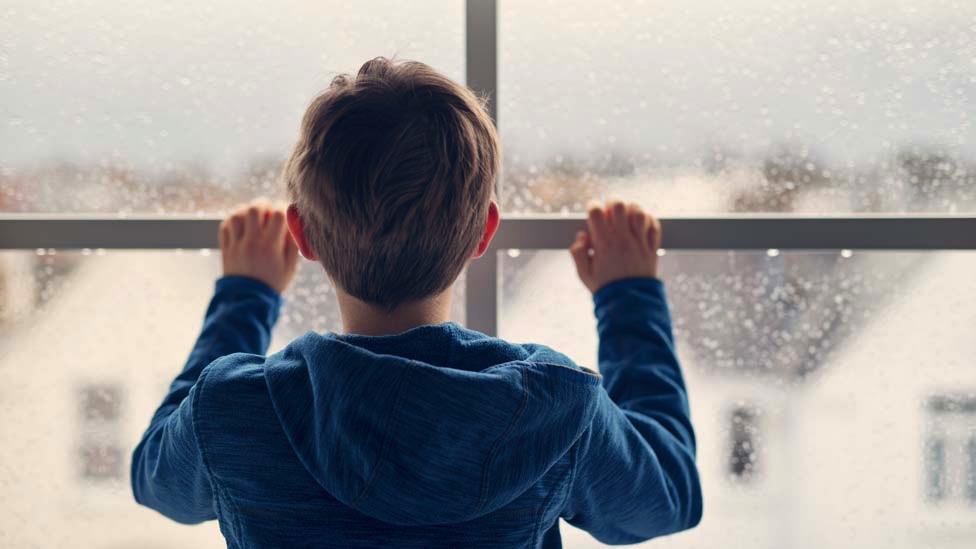Coronavirus: Digital poverty 'a threat to children in care'
- Published
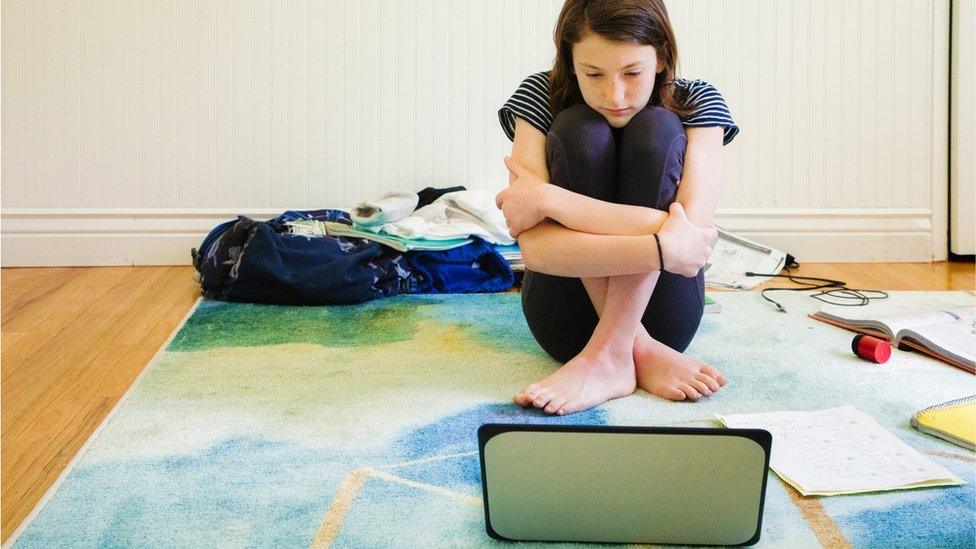
The use of Zoom or Skype by social workers would minimise the disruption caused by coronavirus, VFCC says
A lack of access to basic technology during lockdown poses an "unprecedented threat" to the wellbeing of children in care and care leavers, a charity warns.
Voices from Care Cymru (VFCC) said some of the most vulnerable children and young people in society cannot stay in touch with important support networks.
The charity warned isolation and poor mental health is on the rise and called on councils to utilise technology.
Local authorities have accepted there are "technological challenges".
But the Welsh Local Government Association (WLGA), which represents councils in Wales, said social workers are embracing new ways of working.
A lack of access to laptop computers, mobile phones and the internet leaves some people unable to contact friends, family, advisers and social workers, VFCC said.
It added that many of those affected had experienced childhood trauma and instability, and may have an existing mental illness at a time of major disruption to mental health services.
"By listening to care-experienced young people from across Wales, we know Covid-19 poses an unprecedented threat to the wellbeing of many vulnerable children and young adults," said VFCC programmes manager Christopher Dunn.
Mr Dunn explained they faced "a wide range of social and financial inequalities" and that "social distancing exacerbates the loneliness and isolation already felt" by those without "the usual family support networks".

'It gets quite depressing'
One care leaver told the BBC she had experienced feelings of isolation despite being fortunate enough to have access to electronic devices.
Sarah Crombie, 19, lives in supported housing in Torfaen after spending two years in care.
She said it was very common for friends who are in care, or have left care, to have no access to such technology.
Although she has access to a laptop and mobile phone, she said she became depressed during the first two weeks of lockdown.
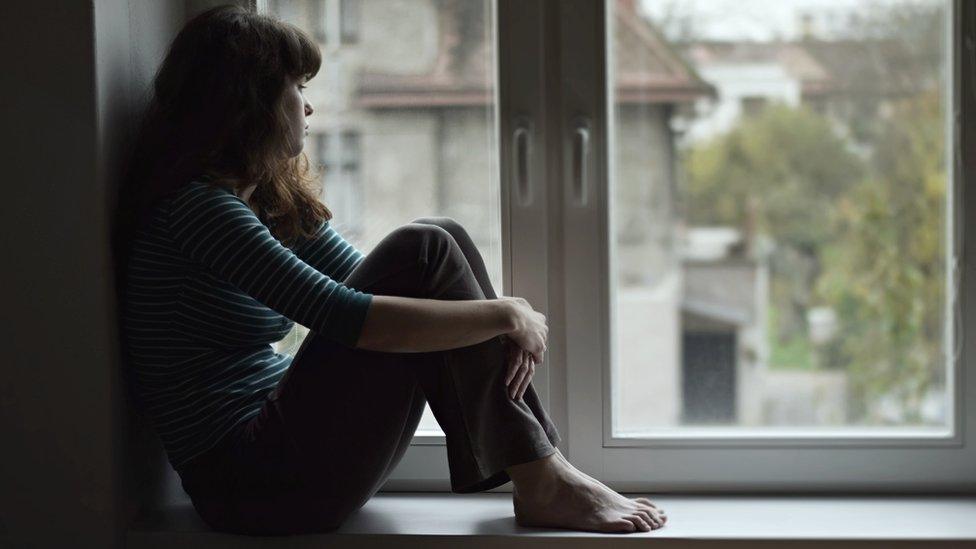
Isolation and poor mental health is on the rise among children in care and care leavers, a charity says
"When you are on your own, it gets quite depressing - there's only so much you can do," she said.
"Most of the time the only chance you have to talk to someone is contact with your PA [personal adviser] or social worker, and that is really limited.
"We know they have got big caseloads, but at the same it is hard to contact them even by text or call. They need to be more engaged; they need to contact young people more."
Sarah has worked hard enough at college to have the choice between two universities to study at.
But with open days cancelled, she said she feels unable to make an informed decision.
And with a new tenant due to move into her shared accommodation, she is anxious about becoming infected.
"I have asked my social worker if they can be tested or something because it does worry me," she explained.

Dan Pitt, co-chairman of VFCC and a care leaver, said: "Relationships are so important for care-experienced children and young people, so getting to see their social worker via Zoom or Skype, even if it's to just check in, will minimise the disruption of Covid-19."
A WLGA spokesman added: "Local authorities continue to work extremely hard to overcome these barriers by tailoring approaches to meet individual needs and ensure that they meet their statutory duties."
Sally Holland, the Children's Commissioner for Wales, called on people to remember "young people can be lonely too".
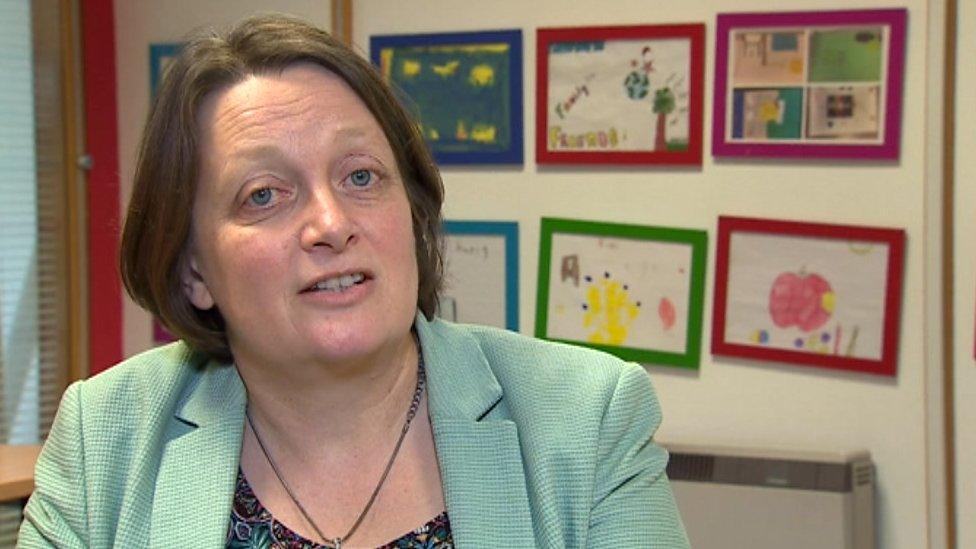
Sally Holland calls on people to remember children and young people also feel isolated
She added: "Imagine just for a moment living through this lockdown in a bedsit on your own, aged 18, with no family support, hardly any money, possibly mental and physical health problems and little access to a digital device?"
VFCC chief executive Deborah Jones praised the "resilience" of care-experienced young people.
The Welsh Government said it had announced £3m of funding to provide digital devices and internet access to "excluded learners".
"We have been assured by heads of children's social services in Wales that children in care are being supported to maintain contact with family and friends during the pandemic," a spokesman added.
- Published13 May 2020
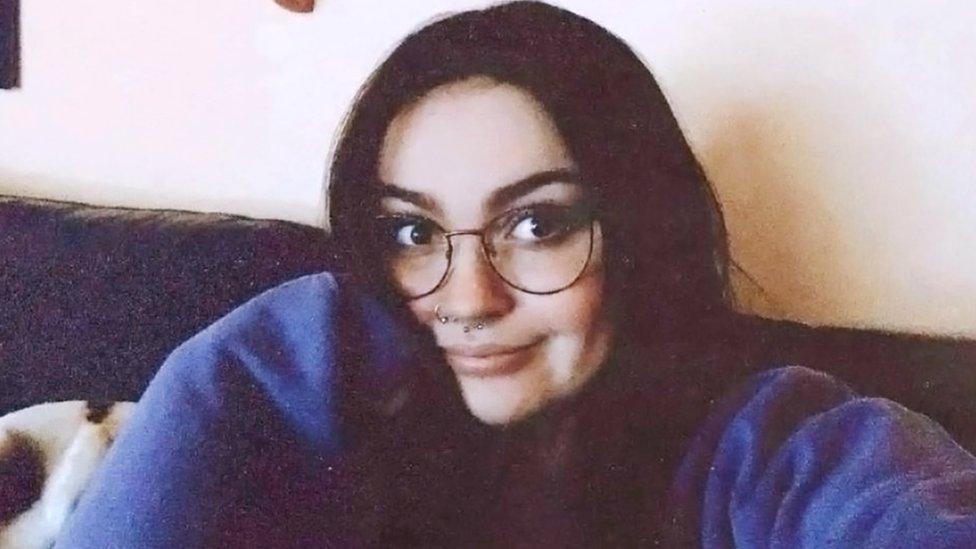
- Published7 May 2020
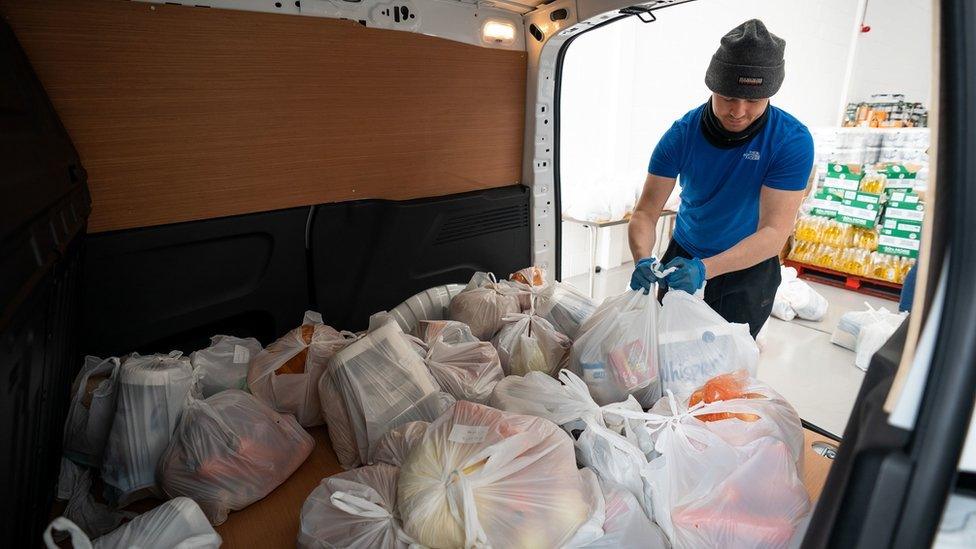
- Published21 April 2020
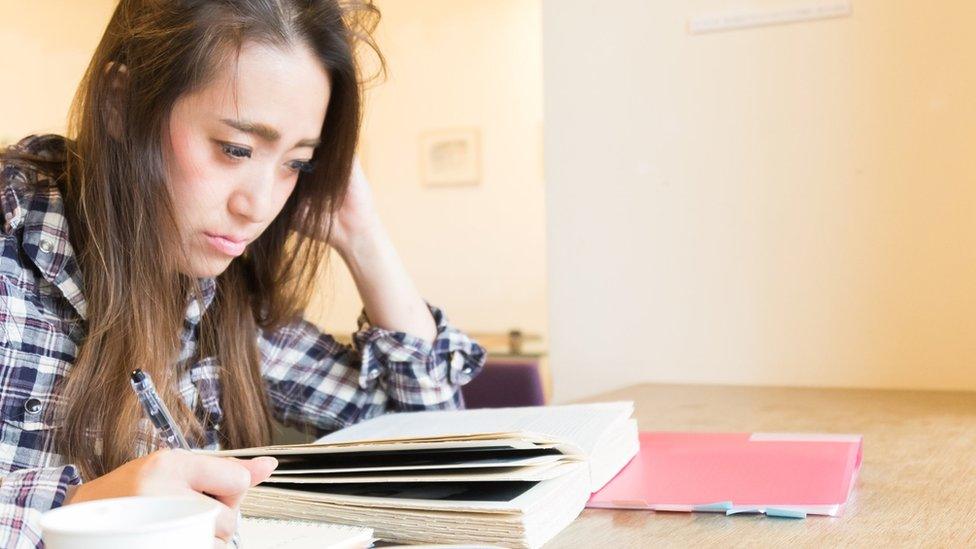
- Published18 April 2020
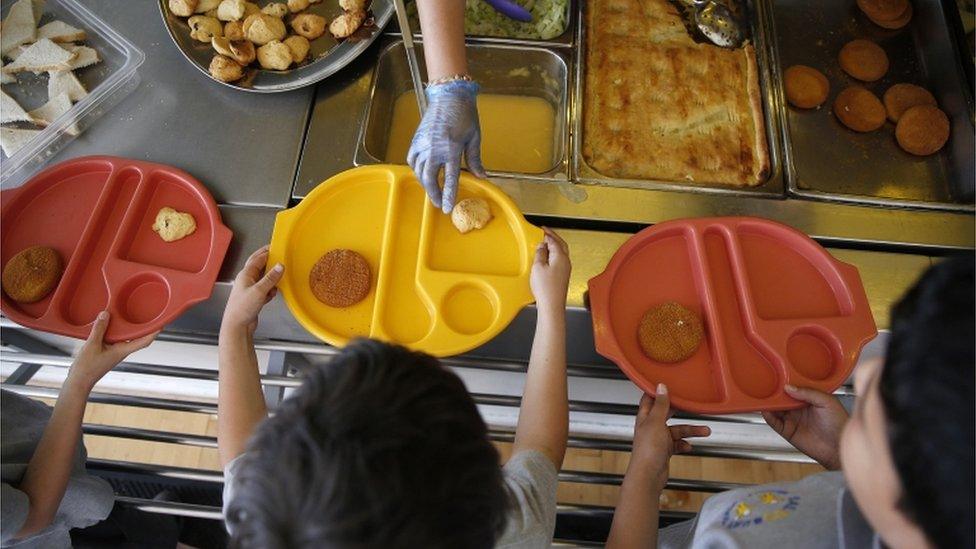
- Published9 April 2020
